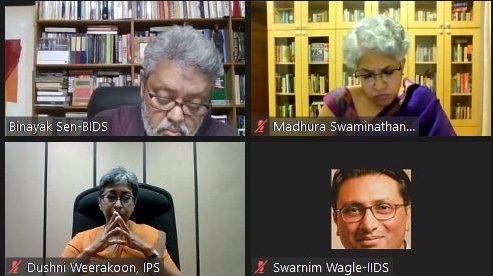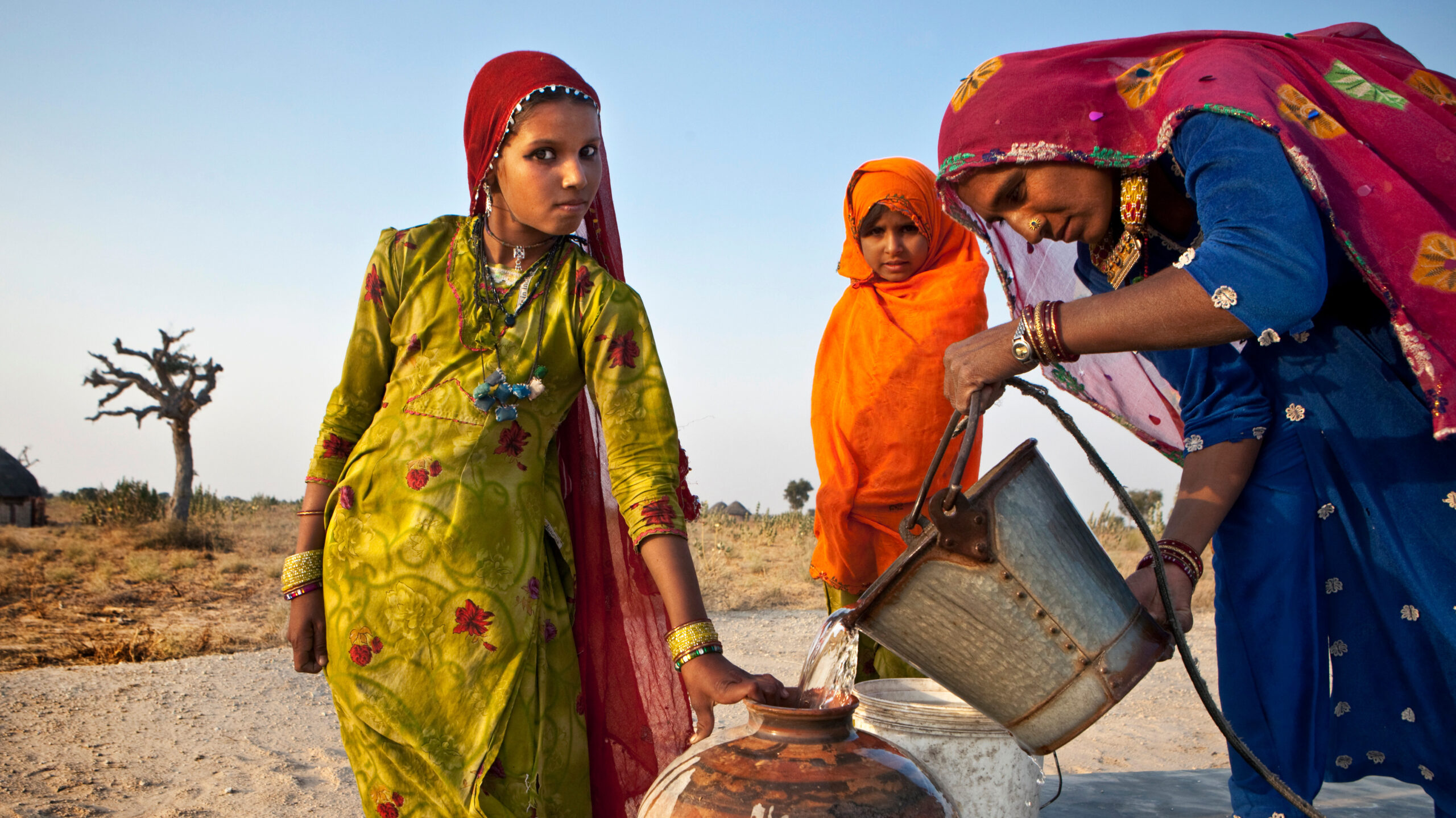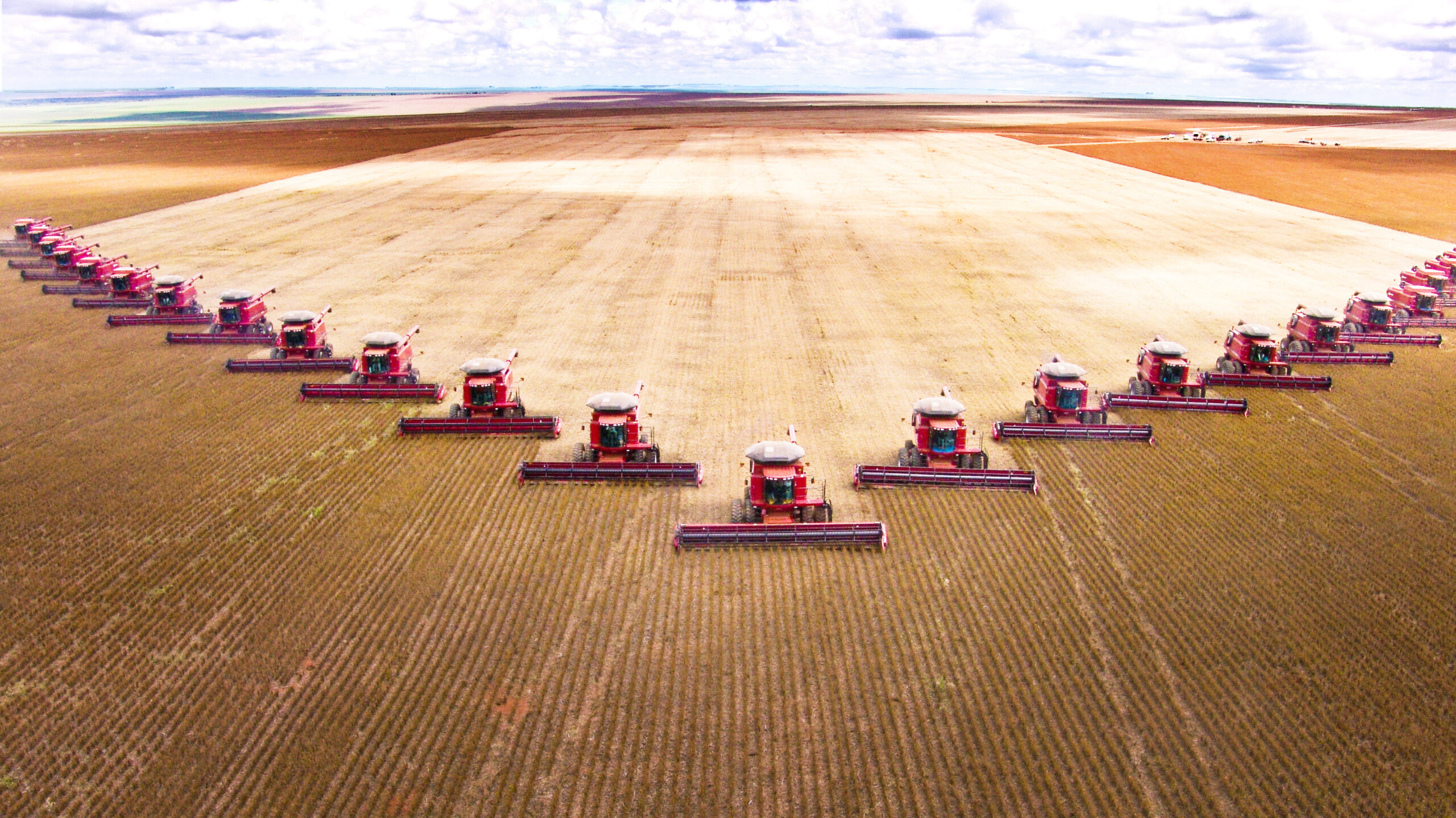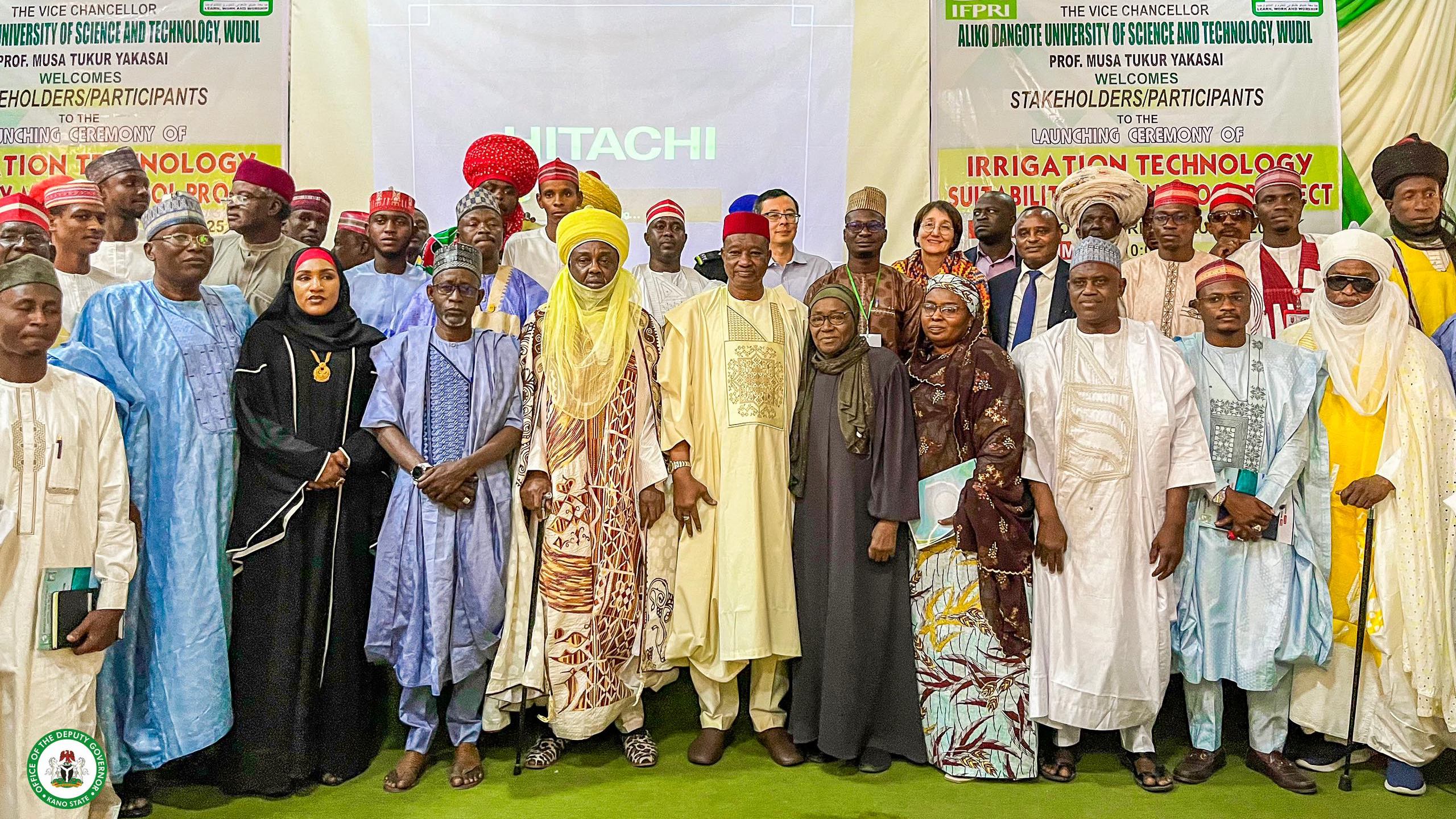The severe health and economic impacts of the COVID-19 pandemic have disrupted food systems and upended livelihoods across the globe. South Asia, with its population of almost 2 billion people, accounted for nearly half of all new, known infections worldwide as the second wave battered the region in 2021. While many early expert predictions about dire impacts on economy and poverty did not materialize, and food and agriculture remained resilient, pre-pandemic challenges have remained and new chinks in the armor have surfaced.
Policymakers and think tank leaders from across the region gathered for a virtual launch event July 8 to discuss the highlights of the 2021 Global Food Policy Report (GFPR) and to share their perspectives on COVID-19’s impacts on the economy and food systems in South Asia. The launch was co-organized by IFPRI South Asia, the Indian Council of Agricultural Research (ICAR), and the Research and Information System for Developing Countries (RIS).
“This crisis has revealed these problems in a way that none of us can ignore, but it has also demonstrated that we have effective ways to address these problems. In many countries, including India, farming has been quite resilient, relatively, when compared to the other sectors. We see that it is the service and industrial sectors which have suffered more than the agriculture and farming sectors,” said IFPRI Director General Johan Swinnen.
The South Asian perspective
At the time the pandemic struck in early 2021, the region’s agriculture sector was growing. Then, during the first wave, agriculture and food systems in South Asia demonstrated unexpected resilience—thanks largely to the region’s decades of investments in infrastructure and institutions for social transfers and safety nets, as well as the pandemic-related expansion of many of these programs.
The GFPR cautions that any kind of complacency is ill-advised, and indeed, the pandemic’s second wave in spring 2021 overwhelmed health systems and disrupted livelihoods across South Asia.
“COVID disrupted the impressive streak of economic growth in South Asia. It has been huge blow to the region, but the shock also offers an opportunity for us to integrate food systems transformation to the overall development strategies,” said IFPRI South Asia Director Shahidur Rashid. The Sustainable Development Goals will not be achieved if South Asia does not meet its targets, he added.
Experts from Bangladesh, Nepal, India, and Sri Lanka also shared their insights on regional aspects of food systems.
While agriculture prospered overall, prices for many crops fell and costs rose, leading to an income squeeze. Madhura Swaminathan, Chairperson of the M.S. Swaminathan Research Foundation (MSSRF) and Professor at the Indian Statistical Institute (ISI) pointed out the importance of the role of public sector in moderating food price volatility by way of investment in storage, marketing, cold chains, and processing. Multi-stakeholder partnerships are also crucial, she said, “for enhancing and financing food security and nutrition, where the different civil society groups in countries could be brought in as the third party and thus encourage and ensure accountability.”
Perspectives on technology, agricultural science, and policies
Swarnim Wagle, Chairman of the Institute for Integrated Development Studies in Nepal, stressed the role of digitalization in food systems. “We need new digital ambitions to reflect not just what technologies were 10 years ago or today, but where it is going; and all the techno-regulatory hurdles to achieve universal affordable broadband access, how we leverage that for public provisioning of services.” Digital technologies are key to reforming social protection programs with cashless, paperless, and presence-less services that eliminate the middleman, he said.
The government of India has played an important role through the pandemic by providing social protection through its various flagship programs—offering free food, enhancing the public distribution system, and creating jobs, said Trilochan Mohapatra, Secretary of DARE and Director General of the Indian Council of Agricultural Research (ICAR).
Looking ahead, he noted the importance of expanding the use of biofortified crops, shortening of supply chains, expanding e-commerce, and promoting micro-food enterprises to promote better health and nutrition in food systems.
Anisha Mohan is a Communications Associate with IFPRI-South Asia in New Delhi







